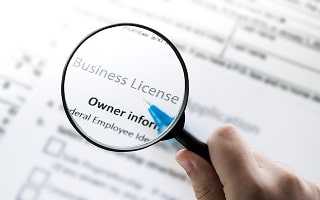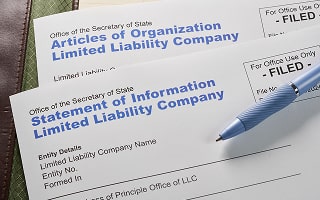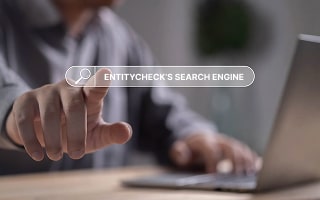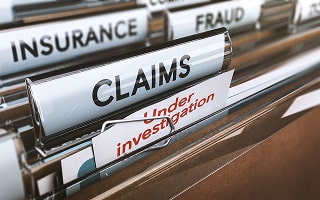- Alabama
- Alaska
- Arizona
- Arkansas
- California
- Colorado
- Connecticut
- Delaware
- Florida
- Georgia
- Hawaii
- Idaho
- Illinois
- Indiana
- Iowa
- Kansas
- Kentucky
- Louisiana
- Maine
- Maryland
- Massachusetts
- Michigan
- Minnesota
- Mississippi
- Missouri
- Montana
- Nebraska
- Nevada
- New Hampshire
- New Jersey
- New Mexico
- New York
- North Carolina
- North Dakota
- Ohio
- Oklahoma
- Oregon
- Pennsylvania
- Rhode Island
- South Carolina
- South Dakota
- Tennessee
- Texas
- Utah
- Virginia
- Washington
- West Virginia
- Wisconsin
- Wyoming
How to Conduct a Vermont Business Entity Search
- How to Conduct a Vermont Business Entity Search
- Allowable Entity Types in Vermont
- Why Search for a Vermont Business Entity
- How to Search for Business Entities
- Make a Business Background Check Easier with EntityCheck
- Alternative Resources Beyond the SOS (Secretary of State) Search
- How to Find the Owner of a Business Entity in Vermont
- Additional Resources for Business Ownership Info
- Types of Owners and Their Roles
- Red Flags to Look for When Searching Business Entities
- Best Practices When Reviewing Business Entity Records
- How to Register an Entity in Vermont
- How Much Does It Cost to Start a Business in Vermont?
- FAQs
- EntityCheck in US States

According to the NAICS Association, Vermont has 42,414 registered businesses. This figure represents the total number of companies in the state as of the last tally. Vermont ranks last among states for starting a business due to high startup costs, a challenging business climate, and potential obstacles. Small businesses account for a large share of Vermont's workforce, employing about 61.5% of private-sector employees.
Registering a business in Vermont offers benefits such as access to state-offered incentives and grant programs, including the Vermont Employment Growth Incentive (VEGI), as well as the opportunity to gain credibility and legal protection. Key advantages include financial support through programs such as the State Small Business Credit Initiative (SSBCI) and the ability to expand business operations. At the same time, a potential drawback is higher startup costs compared to some other states.
Vermont offers several capital and incentive programs, including the Brownfields Revitalization Fund (BRF), the ThinkVermont Innovation Grant Program, and the Vermont Employment Growth Incentive (VEGI). Vermont has seen significant economic activity from small and medium-sized enterprises (SMEs), indicating a strong business environment.
The most common types of businesses in Vermont include manufacturing, healthcare, and tourism, which are key drivers of the state's economy. Other significant industries are small businesses, professional and scientific services, educational services, and retail trade. Agriculture is another strong sector, with a particular focus on specialty products such as maple syrup.
Allowable Entity Types in Vermont

Vermont allows for several business entity types, including Sole Proprietorships, Partnerships, Limited Liability Companies (LLCs), and Corporations. Each has different implications for liability and taxes, with LLCs and corporations offering limited liability protection while sole proprietorships do not.
The most common type of business entity in Vermont is the sole proprietorship, though the limited liability company (LLC) is also very popular. Sole proprietorships are common because they are easy to set up, and the business is a direct extension of the owner. They are popular for Vermont's retail trade. LLCs are popular due to their liability protection, which shields personal assets from business debts.
Why Search for a Vermont Business Entity

The most common reasons to search for a Vermont business entity are to verify its existence and good standing, check name availability, confirm licenses and registrations, and find contact information or business details. This is essential for due diligence when entering into partnerships, making investments, or conducting business with another company. You can also use these resources to fulfill your own business's legal and tax obligations, such as finding information for filings and tax returns.
A few of the many reasons to search for a Kentucky business include:
- Verify a Business's Existence: Search for the business to confirm it is registered and authorized to operate in Vermont.
- Confirm Licenses: Check that a business is properly licensed to conduct its activities in the state, particularly for financial or professional services.
- Check Name Availability: Ensure a desired business name is not already in use before registering your own entity.
- Find Contact Information: Use online databases, such as the Vermont Business Registry, to locate vendors, suppliers, and other businesses.
- Confirm Legal Status: Request a Certificate of Good Standing to officially confirm the entity complies with state requirements and is authorized to do business.
- Navigate State and Local Requirements: Use resources like the Vermont Business Portal to create a checklist of required steps, paperwork, and permits.
- Fulfill Tax Requirements: Find information on federal and state taxes, including business income tax forms and deadlines, on the Vermont Department of Taxes website.
- Submit Required Filings: Access the Vermont Secretary of State's website to file annual reports, amendments, and other necessary documents.
- Performing Due Diligence: To research potential partners, suppliers, or competitors, and to check the legitimacy of a company before investing.
- Information Retrieval: To find official details like the registered agent, company type, and key officers listed on the most recent annual report.
- Market Analysis: To understand the competitive landscape by reviewing existing businesses in a particular industry.
- Ensure Legal Compliance: Registering a unique name is a requirement for forming an LLC or corporation. Searching beforehand is a necessary step to comply with these rules and avoid legal issues later on.
- Track Your Own Business Registration: You can also use the search to find details about a business you already own, such as its registration number or filing history.
- Prevent Legal Issues: Searching for an existing entity helps you avoid legal battles over trademark infringement and other name-related disputes.
- Ensure Tax Compliance: A unique business name is crucial for tax purposes, as it ensures your business is correctly identified and associated with its tax obligations.
- Confirm Registered Agent Information: Use the search to find the registered agent for an existing company.
- Investigate Potential Partners or Competitors: Researching a company can help you understand its history, structure, and regulatory compliance before making a business decision and jeopardizing your own company.
- Name Reservations: To see if a preferred name is available to be reserved for a limited time, which can help secure a domain name and other branding elements while preparing to register the business formally.
- Before Investing: Conducting thorough due diligence when acquiring or investing in a business.
- Trademarks: Searching for registered trademarks to avoid conflicts.
How to Search for Business Entities

Conducting business entity searches is essential for anyone looking to engage with a business, whether as a customer, consumer, investor, supplier, or legal professional. Business entity searches ensure that consumers deal with reputable entities, building consumer trust. Investors may use entity searches to assess a business's legitimacy and stability before investing. Furthermore, companies can vet potential suppliers to ensure they are in good standing.
To search for a Vermont business entity, go to the Vermont Secretary of State's online business portal to search for entity records.
Choose your search criteria from the options below:
- Business Name: Search by the full or partial name of the business or its owners.
- Record Number: Use the six-digit registration number issued by the state.
- Registered Agent Name: Search by the name of the entity's registered agent.
What Information Can You Find with the Secretary of State?

The search result displays the business name, record number, entity type (e.g., domestic nonprofit, foreign LP), and business address. The status may include inactive, administratively terminated, active-not in good standing, or active in good standing.
How to Access Detailed Information

Clicking on the entity name provides access to detailed information, including:
- Business Name
- Business Status
- Date of Formation
- Foreign Jurisdiction Country and State
- Annual Report Information
- Business Purpose / NAICS Codes
- Registered Agent Information
- Principal Information
- Filing History
For further assistance, you may contact the Vermont Secretary of State's office.
Some additional information you can find on the Secretary of State's website includes:
- Business Updates: Includes mergers, amendments, and changes to agents.
- Reports & Renewals: Manage renewals, annual reports, and reinstatements.
- End Registration: Terminate domestic or foreign entity registrations.
- Copies and Certificates: Request certified or plain copies of filings.
- Other Services: Access trademark filings and data broker listings.
What Business Entity Information is Not Public

In Vermont, the specific details of LLC membership, such as the owners' identities and ownership percentages, are not part of the public record as they are kept in the internal operating agreement, which is not filed with the state. Additionally, other personal and sensitive information, such as personnel files, tax documents, and criminal investigation records, is exempt from public disclosure under Vermont's Public Records Law.
Some things that are not publicly available are:
- LLC Ownership: While an LLC is registered with the state, the identities of its members and their ownership percentages are typically documented in an internal operating agreement, which is not a public document.
- Personally Identifiable Information: Vermont law exempts certain records from public access, including personnel files and tax documents.
- Confidential Business Records: Certain business-related records are protected from public disclosure, such as records related to criminal investigations or sensitive financial information, including tax documents.
- Other Exemptions: Other records exempt from public disclosure include those related to the location of historical or archaeological sites.
- Trade Secrets: Formulas, processes, methods, or other proprietary information that derives economic value from not being generally known to the public and is the subject of reasonable efforts to maintain its secrecy.
- Private Employee Medical Records: Medical and health insurance information.
- Customer and Employee Identifying Information: Identifying information like Social Security Numbers, driver's license numbers, and passport numbers.
- Revenue and Profit Numbers (unless a public company): Smaller companies that are not publicly traded can keep their financial data private.
- Financial Data: Bank and credit card numbers, as well as loan information.
How to Find EIN and UCC Records in Vermont

To find EIN records for Vermont companies, you can use the IRS Tax Exempt Organization Search for non-profits, the SEC's EDGAR database for public companies, or the Vermont Secretary of State's Business Entity Search for Vermont-registered businesses. You can also try searching for your own EIN on old tax returns or bank statements, or by contacting the IRS directly.
Try using EntityCheck's EIN Lookup tool to find Vermont EIN records.
The Office of the Secretary of State manages Vermont's statewide Uniform Commercial Code (UCC) filing registry. You can search for these records using the SOS state tool. You do need to set up an account to use the search feature.
You can also try using EntityCheck's UCC Filings search tool.
How to Find DBA Records in Vermont

To find DBA (Doing Business As) records in Vermont, search the Vermont Secretary of State's online business search portal for the business name or number. If the DBA is for a sole proprietorship and not registered with the state, you may need to submit a public records request to the specific county or city where the business is located. To search using the Secretary of State's website, enter the DBA name or business ID to search for registered companies. The results will show active status, registered agent, and other details for formally registered businesses.
Make a Business Background Check Easier with EntityCheck

An even more insightful way to search for Vermont business entities and access additional information is to utilize EntityCheck's powerful search engine. Search quickly and easily by business name, EIN, owner, phone number, or email address. Along with the information above, you can dig deeper to find incredibly illuminating details such as:
- UCC Filings
Discover Uniform Commercial Code (UCC) filings, showing creditors' attachment to business assets. These files provide insight into the organization's financial stability by examining its standing debts and the risks they entail. Also find lien details, creditor and debtor information, filing and expiration dates, and collateral and asset claims.
- Court Cases
Evaluate a company's legal record to assess potential risks associated with its operations and identify any outstanding issues. Review bankruptcy filings, liens and judgments, federal court cases, litigation, and legal history of ongoing and past court cases.
- Licenses
Verify business credentials, including licenses, permits, and government certifications, as well as the educational backgrounds of decision-makers, to assess credibility.
- Filing & Compliance
Review a company's financial performance reports, DBAs (Doing Business As), and government Tax IDs.
- Trademarks & Patents
Find out what intellectual properties a company controls and review the details of any trademarks and patents it holds.
- Registered Individuals
Identify key decision-makers, registered agents, corporate officers, and leadership, even if this information is not readily available through official records.
Alternative Resources Beyond the SOS (Secretary of State) Search

The Vermont Secretary of State's office provides a lot of business information, but don't overlook other resources that may also fill in some blanks.
The following government agencies hold information on Vermont business entities:
- Vermont Secretary of State: The Vermont Secretary of State is a state-level official primarily responsible for ensuring free and fair elections, managing business and professional licensing, overseeing land records, and protecting vulnerable individuals. The SOS acts as the official keeper of land records for the state and also oversees programs, like Safe at Home, that protect individuals from domestic violence, sexual assault, and stalking.
- Vermont Department of Taxes: According to this office, "The mission of the Vermont Department of Taxes is to serve Vermonters by administering our tax laws fairly and efficiently, helping taxpayers understand and comply with their state tax obligations."
- Vermont UCC Lien Services: The Vermont UCC Lien Services, which operates under the Secretary of State, processes and stores public records of security interests in collateral, known as Uniform Commercial Code (UCC) filings. These filings, like the UCC-1 form, provide public notice that a creditor has a legal claim to a debtor's assets (e.g., equipment, inventory) to secure a loan. This service allows creditors to protect their interests in a debtor's property and provides potential lenders with information about a business's financial standing.
- Vermont Department of Financial Regulation: The Vermont Department of Financial Regulation (DFR) protects consumers and ensures a stable financial market by licensing and supervising financial institutions and service providers in Vermont. It achieves this through four divisions: banking, captive insurance, insurance, and securities, which regulate entities like banks, credit unions, insurers, and investment advisors. Key functions of this office include financial examinations, consumer complaint resolution, and public education on financial literacy.
- Vermont Public Utility Commission: The Vermont Public Utility Commission (PUC) is a quasi-judicial body that regulates Vermont's public utilities, including those for electric, gas, telecommunications, cable television, and water. Its primary responsibilities include supervising utility rates, quality of service, and overall financial management, as well as regulating the siting of new energy infrastructure.
- Vermont County Clerk Offices: Vermont's Town and County Clerks' Offices primarily handle record-keeping, elections, and public licensing. They record and maintain vital records such as birth and death certificates, land records, and town meeting minutes, and issue licenses for marriage, dogs, and other purposes. Additionally, they administer local elections, provide notary services, and often manage town-specific functions such as tax payments and recycling permits.
How to Find the Owner of a Business Entity in Vermont

To find a business owner in Vermont, use the Secretary of State's online business entity search tool, which allows you to search by business name or entity ID. If the owner's name is publicly listed in the business's formation documents, such as the Articles of Organization, it will appear in the search results. For additional information, you can also check the company's website, LinkedIn, or contact the Better Business Bureau (BBB).
Additional Resources for Business Ownership Info

Some other resources for finding the owner of a Vermont business include:
- Public Records: Public records, such as tax, court, UCC, and real estate records, may contain information about business entity owners.
- Chambers of Commerce: These local community-based organizations provide directories of their members, which may include the names of business owners.
- Better Business Bureau (BBB): The BBB provides a profile search to view detailed information about businesses, including their past and current owners.
- Other Public Records: Business licenses, real estate records, and court documents involving the business entity may also provide ownership information.
- Company's Website: Some business entities may list information about their owners on their websites.
- WHOIS Lookup: Perform a WHOIS search to find the owner of the business's domain name.
- Professional Networks: Check sites like LinkedIn, which may list owners and key personnel.
Types of Owners and Their Roles

In Vermont, business owners can be sole proprietors or part of a larger structure, while leadership roles are broadly similar to national standards, including positions like operations manager, marketing manager, accountant, and quality control manager. Many small businesses are run by one person, but larger companies have a more defined leadership hierarchy.
Types of Business Ownership in Vermont
- Sole Proprietorship/Solo-preneur: This is a very common structure in Vermont, with the vast majority of small businesses being run by a single person.
- Partnership: Two or three people may own and operate a business together.
- Corporation/LLC: Businesses can also be formed as a legal entity, such as a Limited Liability Company (LLC) or a corporation, through registration with the Vermont Secretary of State.
Typical Leadership Roles in Vermont Businesses
The specific leadership roles can vary based on the size and industry of the business, but common positions include:
- Operations Manager: Oversees the daily operations and processes of the business.
- Marketing Manager: Handles marketing, advertising, and brand management.
- Accountant/Controller: Manages financial records, payroll, and tax reporting.
- Quality Control/Safety Manager: Ensures that products and processes meet quality and safety standards.
- Office Manager: Manages the office's administrative and day-to-day functions.
- Supervisor/Foreperson: A leadership role in overseeing a team of employees on a specific project or shift.
Industries with Significant Leadership in Vermont
- Healthcare: The University of Vermont Health Network is one of the largest employers in the state, with various leadership and management roles across its network.
- Education: Universities like the University of Vermont employ thousands, including numerous leadership and administrative positions.
- Agriculture: Vermont's strong agricultural sector offers a range of leadership roles, from farm managers to positions within agricultural businesses.
Different entity structures have various roles and types of ownership. Some individuals who have control over a company may not hold a traditional role within it. Leadership is a crucial factor to understand before working with a company.
Some of the more conventional roles within companies include:
- Shareholders (or Stockholders): They own the corporation by purchasing stock, which grants them voting rights to elect the Board of Directors and influence major corporate decisions.
- Directors: Directors set the strategic course for the corporation, make major decisions, and oversee the conduct of the officers.
- Officers: Officers, such as presidents (CEO) and secretaries, manage the day-to-day operations of the business and are hired and fired by the Board of Directors.
- Members: Members are the owners of the LLC. They can also serve as managers or delegate management to others. Members are typically protected from personal liability for the company's debts.
- Managers: Managers, whether members or non-members, are responsible for managing the business and affairs of the LLC.
- General Partners: They manage the business affairs as outlined in the partnership agreement. General partners are entirely liable for all business debts and obligations.
- Limited Partners: Limited partners have limited management rights. Their liability is typically limited to their investment in the business, providing them with some protection from business debts.
Red Flags to Look for When Searching Business Entities

Red flags when searching for Vermont business entities include checking for an "inactive" or "dissolved" status, noticing delays or errors in filings, verifying that the business name includes the required "LLC" or similar suffix, and spotting signs of scams, such as unsolicited offers of cryptocurrency investments or emails from suspicious sender addresses. Also, watch for a lack of professional credentials, poor online reviews, and a reluctance to provide a physical address or phone number.
Some general red flags to watch out for include:
- Poor Reviews and Reputation: Always avoid businesses that have consistently poor reviews or a bad reputation.
- Lack of Transparency: Avoid any companies that refuse to connect on a live call due to being "busy" or "out of the office", or are unwilling to provide documentation.
- Inadequate Insurance or Permits: A business that isn't properly insured or permitted may expose you to legal or financial risks.
- Generic Contact Information: Using a free email service like @gmail.com or @hotmail.com instead of a business-specific domain can be a warning sign.
- Lack of Physical Address: The business may only have a P.O. Box or no physical premises listed.
- Poor Communication: Inability to reach a representative, unanswered calls, or a lack of a landline.
- Opaque Ownership: Lack of transparency about who owns or controls the company.
- No Online Presence: There is no website or online advertising.
- Resistance to Due Diligence: The company is reluctant to provide information needed to verify its legitimacy.
More serious red flags to be aware of consist of:
Entity Status Problems

Entity status problems usually indicate that a company is not legitimate or is engaging in illegal practices in the state. Watch out for a business with an "inactive expired", "dissolved", or "withdrawn" status.
Look for delays or errors in filings, as well as missing documents like meeting minutes, signed contracts, or other essential agreements. Not filing regular reports could indicate the business is dissolved or fraudulent.
Before partnering with anyone, ensure the business name includes the required suffix, like "LLC", "L.L.C.", or "Limited Liability Company" for LLCs. If not, they could have compliance issues.
The most common entity status violations in Vermont are related to unauthorized foreign entities transacting business without registering with the Secretary of State, violations of Public Law 86-272 by engaging in activities beyond mere solicitation, and Social Security number protection violations by improperly sharing or requesting them. Other issues include false certificates of stock ownership and, for a business, engaging in unfair or deceptive trade practices.
Inconsistent or Suspicious Information

Be on the lookout for inconsistent or suspicious information. Mismatched details between the Secretary of State's database and other sources, like the business's website or social media, can indicate a lack of transparency or organization.
Be cautious about frequent changes to the address or registered agent, as this may indicate instability or an attempt to evade service of process. If the company has no physical address, only a P.O. box, be wary.
Vermont requires a DBA (Doing Business As) for businesses operating under a name different from their legal name. Always check for additional company names to be sure you are thoroughly evaluating everything about it.
Ownership and Management Concerns

The management of a company is also a factor in researching Vermont firms. For example, high employee turnover can be a sign of poor management, a toxic work environment, or other internal issues.
It may or may not be easy to find out who owns a company. If the owners are deliberately trying to conceal their identity, that could mean trouble. If the owners' information appears to be fake, you may need to skip-trace on them to find out who they really are.
The most common employment lawsuits in Vermont include discrimination, harassment, wage-and-hour violations, and retaliation. These cases often arise from issues like unfair treatment, hostile work environments, failure to pay overtime, or firing an employee for reporting a violation. Wrongful termination is another significant type of lawsuit, which can occur when an employee is fired in violation of public policy or their employment contract. How a company treats its people may be a sign of how it treats customers, vendors, or partners.
Financial and Legal Warning Signs

Check for inconsistent financial transactions, insufficient documentation, duplicate payments or invoices, or suspicious cash disbursements. They, too, can indicate fraud or potential criminal activity. Always be on the lookout for requests for unusual payment methods, such as wire transfers, credit cards, or payments to a personal bank account.
Additionally, watch for an unusually high number of transactions, especially around the end of a reporting period, which could be an attempt to inflate sales to defraud the government or the public.
The most common business lawsuits in Vermont are breach-of-contract and employment disputes, similar to national trends. Common employment lawsuits include wrongful termination, retaliation, and harassment, while breach-of-contract cases often arise from failure to deliver goods, non-payment, or failure to fulfill contractual obligations. Consumer fraud and landlord/tenant disputes are also frequently litigated in Vermont.
Compliance Gaps

Common business compliance violations in Vermont include wage and hour infractions, workplace discrimination and harassment, and deceptive trade practices. Other areas of concern are violations of the Vermont Data Privacy Act, misclassification of employees, and non-compliance with state and local payroll tax rules. Businesses that process personal data must comply with the VDPA, which may require data protection impact assessments for high-risk activities such as targeted advertising or the processing of sensitive data.
Businesses in Vermont are prohibited from engaging in unfair or deceptive acts or practices, including false advertising, misleading pricing, and bait-and-switch tactics. Failing to disclose a clear refund policy can lead to violations.
Business Purpose and Industry Red Flags

Agriculture is common in Vermont. The agricultural industry is highly regulated. Evaluate a company thoroughly before working with them. Check with government offices to ensure they comply with all requirements.
Connections & Affiliations

A company's connections and affiliations can tell quite a story. Sometimes one person runs multiple dissolved/failed companies. Look for recurring patterns of dissolution followed by new formation. That is a significant indicator of potential fraud. One thing to be cautious of is a company with ties to organized crime figures and politically exposed persons (PEPs). If the company makes a concerted effort to conceal its actual owner or person in charge, that should be a clear warning to stay away.
Some red flags in broader business records include the following:
Inconsistent Public Records
Company filings don't match what's listed in:
- Court records
- Tax records
- Property ownership filings
- An example is that the registered address differs from the address listed in lawsuits or liens.
Poor Record-Keeping
- Missing meeting minutes (for corporations).
- No updated ownership/member list for LLCs.
- Lack of transparency in accounting records.
Regulatory Issues
- Fines, sanctions, or loss of licenses with state agencies.
- Businesses flagged by the Better Business Bureau or the Attorney General's office.
Unusual Patterns
- Very recent incorporation with sudden high activity.
- Foreign entities registered but not compliant with local laws.
- Shell-company indicators (multiple entities tied to the same registered agent at the same address).
Best Practices When Reviewing Business Entity Records

Utilize the best practices outlined below to maximize the benefits of your research. A business background check can take time, but it can yield a wealth of information that could help you avoid any costly mistakes.
- Cross-reference everything.
- Compare the UCC filing data with records from litigation and bankruptcy courts. Look for discrepancies between the documents.
- Check annual reports for consistency year-over-year.
- Research the owners of a company to detect possible bankruptcies, felonies, fraud, and other legal issues that could affect your business.
- Use business verification services or business background reports from EntityCheck.
- Keep in mind the context. For example, a single lien may not be alarming, but multiple filings, lawsuits, and frequent leadership turnover together signal real risk.
How to Register an Entity in Vermont

Entity searches help verify crucial information about a business. Generally, entity searches are conducted for various reasons. The most vital reason is to check name availability and ensure you are in compliance with Vermont business name rules.
The steps involved in registering a business entity in Vermont include:
- Identify your business type and legal structure (e.g., profit, nonprofit, foreign, or professional).
- Choose a unique name and review Vermont's Business Name Rules.
- File incorporation documents online.
- Register for an EIN with the IRS.
- Submit BOI filings to FINCEN.
- Set up an employer tax account with the Department of Labor.
- Register with the Vermont Department of Taxes.
- Use the Register a Business in Vermont guide for further help.
How Much Does It Cost to Start a Business in Vermont?

Costs vary by entity type and business size. Typical filing fees include:
- LLPs: Domestic: $75; Foreign: $100
- All Other Entities: Corporations, LLCs, nonprofits, and others: $125
- Annual Reports: Filed by most businesses between $15 and $200, depending on entity type
When naming your company, you must comply with Vermont business naming guidelines. Vermont business names must be distinguishable from existing names and avoid misleading language, such as implying a false corporate structure or government affiliation. Requirements include specific legal suffixes, such as "Corp." or "LLC", for specific entity types but not for others. You must check the availability of your desired name through the Vermont Secretary of State's business search portal before filing.
Vermont business naming rules include:
Distinguishable Name: The name must be unique and not confusingly similar to any other registered or reserved name. The state has specific rules for determining if a name is distinguishable, such as differences in word order, the addition or omission of words, or the use of different words with similar meanings.
No False Implications:
- A name cannot imply a false corporate structure (e.g., using "LLC" for a sole proprietorship) or a misleading type of business.
- It's forbidden to use words or phrases that falsely suggest government affiliation (e.g., "federal", "city", "county") or official/professional authorization (e.g., "bank", "university", "insurance") without the proper licensing.
Entity-Specific Requirements:
- Corporations: Must include "corp", "corporation", "Inc", "Incorporated", "Company", "Co.", "Limited", or "Ltd."
- Professional Corporations: Must use "PC" instead of other corporate designations.
- LLCs: Must include "LLC", "LC", "Limited liability company", "limited company", or "limited".
No Misleading Words: A name cannot include any word or phrase that falsely implies it is a business entity when it is actually an assumed business name (DBA).
Discriminatory or Obscene Language: The use of discriminatory or obscene language is prohibited.
FAQs
- How do I look up who owns an LLC in Vermont (members vs. managers)?
You can look up LLC ownership information in Vermont by using the Vermont Secretary of State's online business entity search tool to find public filings like the Articles of Organization. While this search may list the initial members, it often does not provide a complete, up-to-date list of all owners and may only list a registered agent or principal office, as many LLCs do not publicly file their operating agreement. You can then contact the registered agent or the company itself to get the information.
- How can I find a corporation's officers and directors in the state?
You can find a corporation's officers and directors in Vermont by using the Vermont Secretary of State's online business entity search tool, searching the SEC's EDGAR database for public companies, or by checking the company's own website. For Nonprofits, you can check the IRS Tax Exempt Search tool.
EntityCheck's business background reports also provide information about a company's directors, officers, and associates.
- Are business owners' names public or private in Vermont?
In Vermont, business owners' names are public if they are listed on state-filed formation documents for a business, such as a limited liability company (LLC). These names are part of the public record and can be accessed through the Secretary of State's office.
- Where do I search official business records in the state?
You can search for official business records in Vermont through the Secretary of State's Business Services Division website and through the Vermont Department of Taxes website. Many records, such as those for business registration and good standing, are managed by the Secretary of State. Specific permits or licenses may require searching the websites of other relevant state agencies or contacting local municipal offices, as Vermont has no statewide general business license.
- How do I check if a business name is available or reserved in Vermont?
To check if a business name is available in Vermont, use the online Business Entity Search on the Vermont Secretary of State's website. Enter your proposed name into the search bar and choose the "Contains" option for the most comprehensive results to see if the name is already registered or reserved. You will need to perform additional searches, such as checking for similar-sounding names, and may also want to search for a federal trademark using the USPTO's TESS database.
- How can I view recent filings (Articles, amendments, mergers, annual/biennial reports) for a company in Vermont?
You can view company filings in Vermont by using the Vermont Secretary of State's (SoS) Business Filings portal, where you can search for a business to find its filings, like annual/biennial reports, amendments, and initial articles. For public companies, you can also use the SEC's EDGAR system to find additional financial reports and filings.
- How do I get a Certificate of Good Standing/Existence in Vermont?
To get a Certificate of Good Standing in Vermont, you must go through the Vermont Secretary of State's online business portal, log in, and select the document from the dashboard. You will need to pay the $25 fee, and then you can download the certificate immediately after payment. It will be in PDF format.
- How do I obtain certified copies of formation documents and amendments in the state?
To get certified copies of formation documents and amendments in Vermont, you must request them from the Vermont Secretary of State, Division of Corporations. You can typically do this by using the online business search to find your company, then following the steps to request certified copies through their online services.
- How do I search UCC (Uniform Commercial Code) liens against a company in Vermont?
To search for UCC liens against a company in Vermont, you should search the Vermont Secretary of State's UCC database by the company's name. Accessing this online database is the most direct way to see any public UCC filings. If you need to conduct a more extensive search, you may consider using a third-party lien search service or, for a complete record search, contacting the Vermont Secretary of State office directly.
You can also use the handy EntityCheck UCC search tool to find liens against a Vermont company.
- What are the steps to register an LLC in Vermont (forms, fees, timeline)?
To register a Limited Liability Company (LLC) in Vermont, you choose a name, appoint a registered agent, check name availability, and then file the Articles of Organization with the Secretary of State, which costs $125. You can file online for faster processing (under one business day) or by mail, which takes 7-10 business days. The filing requires your LLC's name, business address, a registered agent, and other details. After registering, you should also apply for an EIN with the IRS.
- What are the steps to incorporate (C-Corp/S-Corp) in Vermont?
To incorporate in Vermont, you must choose a business name and a registered agent, then file the Articles of Incorporation with the Vermont Secretary of State. After the state approves the formation, you should create corporate bylaws, appoint directors, hold an organizational meeting, issue stock, and obtain an Employer Identification Number (EIN). To be an S-Corp, you must also file Form 2553 with the IRS.
- Do I need a registered agent in the state, and who can serve as one?
Yes, a registered agent is required for all corporations and LLCs in Vermont, and they can be either an individual (18 or older) or a company, as long as they have a physical address in the state and can receive legal documents during business hours. While you can serve as your own agent, doing so makes your home address public record. Alternatively, you can hire a commercial registered agent service to maintain privacy and ensure consistent availability for service of process.
- What annual reports, franchise/margin taxes, or license renewals are required in Vermont?
Vermont requires an annual report for most businesses, with specific filing deadlines based on entity type, and most companies need to file an annual income tax return. The particular form and tax depend on the business structure, such as Form CO-411 for C-Corps or Form BI-471 for pass-through entities like LLCs taxed as partnerships. A separate Bank Franchise Tax is required for banks and other financial institutions with Vermont deposits. Nonprofit corporations and nonprofit cooperative corporations must file a biennial report between January 1 and April 1.
You must register with the Vermont Department of Taxes to collect or pay specific taxes, including Sales and Use Tax, Employer Withholding Tax, and others.
Depending on your industry, you may need additional professional or industry-specific licenses and renewals that are not covered in this general overview.
- How long does state approval take in Vermont, and are expedited options available?
Standard state approval in Vermont can vary, but for LLC formation, it's around 2-3 weeks, with an expedited option available for 4-6 days. For nursing licensure, a new "Fast-Track Endorsement" can approve licenses in as little as two business days for those with three years of prior experience in another state. Other approvals, such as for medical licenses, may take longer, with an average of 6 to 12 weeks for medical licenses, and even longer for federal processes like green card applications.
- Do I need to foreign-qualify to do business in Vermont if my company is formed elsewhere?
Yes, you likely need to foreign-qualify to do business in Vermont if your company is formed elsewhere, especially if you have a physical presence, hire employees, or conduct certain taxable activities. This is required for an out-of-state business to operate in Vermont legally and involves registering with the Vermont Secretary of State by filing an Application for Certificate of Authority.
- What activities count as "doing business" in the state?
Activities that count as "doing business" in a state include having a physical presence like an office or warehouse, hiring employees who work in the state, generating a significant portion of your revenue from the state, or regularly meeting with clients there. Other activities include selling products or services, maintaining an inventory, and accepting orders within the state.
- How do I file a DBA/fictitious business name in Vermont, and is county/city filing required?
To file a DBA in Vermont, you must register an "assumed name" with the Vermont Secretary of State online or by mail, but no local/city filing is required. You will need to complete the Assumed Business Name Registration form, pay a filing fee (typically around $50-$70), and have a backup name and the business's location details. The registration is valid for five years.
- How do I change my company's name, address, officers, or members with the state?
To change your company's information in Vermont, you must file a Certificate of Amendment with the Vermont Secretary of State, which can be done online via the Vermont.gov online services portal. This online filing is the quickest method, taking less than a business day, and is the preferred method over mail. Changes to officers and members may also require updating your internal corporate documents and recording minutes of the changes.
- How do I reinstate or revive a company that's been administratively dissolved in Vermont?
To reinstate an administratively dissolved company in Vermont, you must first correct the reason for dissolution, which typically involves filing all overdue annual reports and paying all back fees and penalties. You can start the process by logging in or creating an account on the Vermont Online Business Service Center to file online or by mailing the required documents and fees to the Secretary of State's Corporations Division.
- Do I need to file Beneficial Ownership Information (BOI) with FinCEN, and how does that interact with Vermont filings?
No, you likely do not need to file Beneficial Ownership Information (BOI) with FinCEN because a March 2025 interim rule exempts all U.S. entities from the reporting requirement. Vermont filings are separate and must continue for your business registration. This means you only need to worry about complying with state-level requirements, not the federal BOI filing.
- How to Conduct a Vermont Business Entity Search
- Allowable Entity Types in Vermont
- Why Search for a Vermont Business Entity
- How to Search for Business Entities
- Make a Business Background Check Easier with EntityCheck
- Alternative Resources Beyond the SOS (Secretary of State) Search
- How to Find the Owner of a Business Entity in Vermont
- Additional Resources for Business Ownership Info
- Types of Owners and Their Roles
- Red Flags to Look for When Searching Business Entities
- Best Practices When Reviewing Business Entity Records
- How to Register an Entity in Vermont
- How Much Does It Cost to Start a Business in Vermont?
- FAQs
- EntityCheck in US States